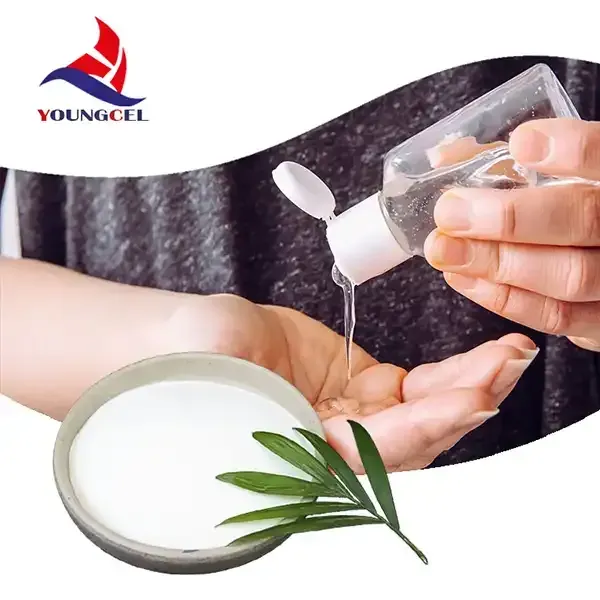Understanding HPMC Thickener A Comprehensive Overview
Hydroxypropyl Methylcellulose (HPMC) thickener is a fascinating subject within the realm of food science, pharmaceuticals, construction, and various other industrial applications. A versatile and multifunctional compound, HPMC plays a pivotal role in enhancing the texture, stability, and overall performance of many products.
What is HPMC?
HPMC is a semi-synthetic polymer derived from cellulose, which is a natural polymer obtained from plant cell walls. It comes from the modification of cellulose through a series of chemical processes that impart water solubility and film-forming properties to the polymer. HPMC is primarily used for its thickening, binding, and emulsifying properties. It comes in different grades and viscosities, allowing for customization depending on the specific application.
Applications of HPMC Thickener
1. Food Industry In the food sector, HPMC serves as a thickening agent, stabilizer, and emulsifier. It is commonly used in products such as sauces, dressings, dairy products, and baked goods. HPMC improves the texture and enhances the mouthfeel of food items while extending their shelf life by preventing separation.
2. Pharmaceuticals HPMC is also widely used in the pharmaceutical industry as a binder and controlled-release agent in tablet formulations. Its ability to form gels upon contact with water makes it an ideal candidate for drug delivery systems. Additionally, HPMC serves as a thickening agent in topical formulations, ensuring an even distribution of active ingredients.
3. Cosmetics and Personal Care HPMC finds its way into the cosmetics industry as a thickening agent in creams, lotions, and gels. Its film-forming properties help in creating a barrier on the skin, providing hydration and enhancing product stability.
4. Construction In construction, HPMC is added to cement-based products like mortar and plasters to improve workability, adhesion, and water retention. This results in better performance during application and durability of the finished product.
5. Paints and Coatings HPMC is used in paints and coatings to improve viscosity and stability, preventing sagging and ensuring an even application.
Properties of HPMC
HPMC exhibits several important properties that make it a popular choice across various industries
hpmc thickener

- Water Solubility As a water-soluble polymer, HPMC can easily dissolve in cold or hot water, forming a clear, viscous solution that can be easily incorporated into many products.
- Thermal Stability HPMC is stable over a wide range of temperatures, which helps maintain its functional properties during processing and storage.
- Non-toxicity HPMC is generally regarded as safe (GRAS) for use in food and pharmaceutical applications, making it a preferred option in consumer products.
- Viscosity Control Depending on the degree of substitution and molecular weight, HPMC can provide a wide range of viscosities, allowing manufacturers to tailor products to meet specific performance criteria.
Benefits of Using HPMC Thickener
The inclusion of HPMC thickener in formulations offers numerous benefits
- Improved Texture and Quality HPMC enhances the sensory qualities of products, making them more appealing to consumers.
- Enhanced Stability By preventing phase separation and sedimentation, HPMC helps maintain the integrity of formulations over time, which is crucial in food and pharmaceutical industries.
- Process Efficiency HPMC can improve the processing properties of materials, leading to more efficient production processes.
- Versatility HPMC can be used in a wide variety of applications, making it an indispensable ingredient across many industries.
Conclusion
In summary, Hydroxypropyl Methylcellulose thickener is an essential material that plays a crucial role in enhancing the quality and performance of a wide array of products. Its versatility, stability, and effective thickening properties make it a valuable asset in food, pharmaceuticals, cosmetics, construction, and beyond. As research and innovation continue, the applications and benefits of HPMC are likely to expand, further solidifying its importance in various fields. Whether you are a manufacturer, a researcher, or a consumer, understanding the capabilities of HPMC thickener can lead to improved products and enhanced experiences across multiple domains.
-
Rdp Powder: Key Considerations for Wholesalers in the Building Materials IndustryNewsJul.08,2025
-
Key Considerations for Wholesalers: Navigating the World of Hpmc - Based ProductsNewsJul.08,2025
-
Hpmc Detergent: Key Considerations for WholesalersNewsJul.08,2025
-
Key Considerations for Wholesalers: China Hpmc For Tile Adhesive, Coating Additives, Concrete Additives, and MoreNewsJul.08,2025
-
Crucial Considerations for Wholesalers: Navigating the World of Construction MaterialsNewsJul.08,2025
-
Key Considerations for Wholesalers Sourcing Additive For Cement, Additive For Concrete, Additive For Putty from Additive Manufacturer Shijiazhuang Gaocheng District Yongfeng Cellulose Co., Ltd.NewsJul.08,2025




